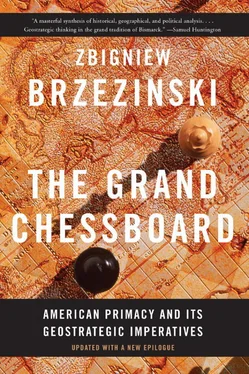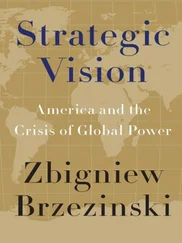According to Yazhou Zhoukan (Asiaweek), September 25, 1994, the aggregate assets of the 500 leading Chinese-owned companies in Southeast Asia totaled about $540 billion. Other estimates are even higher: International Economy, November/December 1996, reported that the annual income of the 50 million overseas Chinese was approximately the above amount and thus roughly equal to the GDP of China’s mainland. The overseas Chinese were said to control about 90 percent of Indonesia’s economy, 75 percent of Thailand’s, 50–60 percent of Malaysia’s, and the whole economy in Taiwan, Hong Kong, and Singapore. Concern over this condition even led a former Indonesian ambassador to Japan to warn publicly of a “Chinese economic intervention in the region,” which might not only exploit such Chinese presence but which could even lead to Chinese-sponsored “puppet governments” (Saydiman Suryohadiprojo, “How to Deal with China and Taiwan,” Asahi Shimbun [Tokyo], September 23, 1996).
Symptomatic in that regard was the report published in the Bangkok English-language daily, The Nation (March 31, 1997), on the visit to Beijing by the Thai Prime Minister, Chavalit Yongchaiyudh. The purpose of the visit was defined as establishing a firm strategic alliance with “Greater China.” The Thai leadership was said to have “recognized China as a superpower that has a global role,” and as wishing to serve as “a bridge between China and ASEAN.” Singapore has gone even farther in stressing its identification with China.
Song Yimin. “A Discussion of the Division and Grouping of Forces in the World After the End of the Cold War,” International Studies (China Institute of International Studies, Beijing) 6–8 (1996):10. That this assessment of America represents the view of China’s top leadership is indicated by the fact that a shorter version of the analysis appeared in the mass-circulation official organ of the Party, Renmin Ribao (People’s Daily), April 29, 1996.
An elaborate examination of America’s alleged intent to construct such an anti-China Asian system is contained in Wang Chunyin, “Looking Ahead to Asia-Pacific Security in the Early Twenty-first Century,” Guoji Zhanwang (World Outlook), February 1996.
Another Chinese commentator argued that the American-Japanese security arrangement has been altered from a “shield of defense” aimed at containing Soviet power to a “spear of attack” pointed at China (Yang Baijiang, “Implications of Japan-U.S. Security Declaration Outlined,” Xiandai Guoji Guanxi [Contemporary International Relations], June 20, 1996). On January 31, 1997, the authoritative daily organ of the Chinese Communist Party, Renmin Ribao , published an article entitled “Strengthening Military Alliance Does Not Conform with Trend of the Times,” in which the redefinition of the scope of the U.S.-Japanese military cooperation was denounced as “a dangerous move.”
The Japan Digest , February 25, 1997, reported that, according to a governmental poll, only 36 percent of the Japanese felt friendly toward South Korea.
For example, the Higuchi Commission, a prime-ministerial advisory board that outlined the “Three Pillars of Japanese Security Policy” in a report issued in the summer of 1994, stressed the primacy of the American-Japanese security ties but also advocated an Asian multilateral security dialogue; the 1994 Ozawa Committee report, “Blueprint for a New Japan”; the Yomiuri Shimbun’s outline for “A Comprehensive Security Policy” of May 1995, advocating among other items the use abroad of the Japanese military for peacekeeping; the April 1996 report of the Japan Association of Corporate Executives ( keizai doyukai), prepared with the assistance of the Fuji Bank think tank, urging greater symmetry in the American-Japanese defense system; the report entitled “Possibility and Role of a Security System in the Asian-Pacific Region,” submitted to the prime minister in June 1996 by the Japan Forum on International Affairs; as well as numerous books and articles published over the last several years, often much more polemical and extreme in their recommendations and more often cited by the Western media than the above-mentioned mostly mainstream reports. For example, in 1996 a book edited by a Japanese general evoked widespread press commentaries when it dared to speculate that under some circumstances the United States might fail to protect Japan and hence Japan should augment its national defense capabilities (see General Yasuhiro Morino, ed., Next Generation Ground Self-Defense Force and the commentary on it in “Myths of the U.S. Coming to Our Aid,” Sankei Shimbun, March 4, 1996).
Some conservative Japanese have been tempted by the notion of a special Japan-Taiwan connection, and in 1996 a “Japan-Taiwan Parliamentarians’ Association” was formed to promote that goal. The Chinese reaction has been predictably hostile.
In a meeting in 1996 with China’s top national security and defense officials, I identified (using occasionally deliberately vague formulations) the following areas of common strategic interest as the basis for such a dialogue: (1) a peaceful Southeast Asia; (2) nonuse of force in the resolution of offshore issues; (3) peaceful reunification of China; (4) stability in Korea; (5) independence of Central Asia; (6) balance between India and Pakistan; (7) an economically dynamic and internationally benign Japan; (8) a stable but not too strong Russia.
A strong case for this initiative, pointing out the mutual economic benefits thereof, is made by Kurt Tong, “Revolutionizing America’s Japan Policy,” Foreign Policy (Winter 1996–1997).
A number of constructive proposals to that end were advanced at the CSIS (Center for International and Strategic Studies) Conference on America and Europe, held in Brussels in February 1997. They ranged from joint efforts at structural reform, designed to reduce government deficits, to the development of an enhanced European defense industrial base, which would enhance transatlantic defense collaboration and a greater European role in NATO. A useful list of similar and other initiatives, meant to generate a greater European role, is contained in David C. Gompert and F. Stephen Larrabee, eds., America and Europe: A Partnership for a New Era (Santa Monica, Calif.: RAND, 1997).
It is appropriate to quote here the wise advice offered by my colleague at CSIS, Anthony H. Cordesman (in his paper on “The American Threat to the United States,” February 1997, p. 16, delivered as a speech to the Army War College), who has warned against the American propensity to demonize issues and even nations. As he put it: “Iran, Iraq, and Libya are cases where the U.S. has taken hostile regimes that pose real, but limited threats and ‘demonized’ them without developing any workable mid- to long-term end game for its strategy. U.S. planners cannot hope to totally isolate these states, and it makes no sense to treat them as if they were identical ‘rogue’ or ‘terrorist’ states…. The U.S. lives in a morally gray world and cannot succeed by trying to make it black and white.”
“An Emerging Consensus—A Study of American Public Attitudes on America’s Role in the World” (College Park: Center for International and Security Studies at the University of Maryland, July 1996). It is noteworthy, but not inconsistent with the foregoing, that studies by the above center, conducted in early 1997 (under principal investigator Steven Kull), also showed a considerable majority in favor of NATO expansion (62 percent in favor, with 27 percent strongly in favor; and only 29 percent against, with 14 percent strongly against).
Читать дальше












